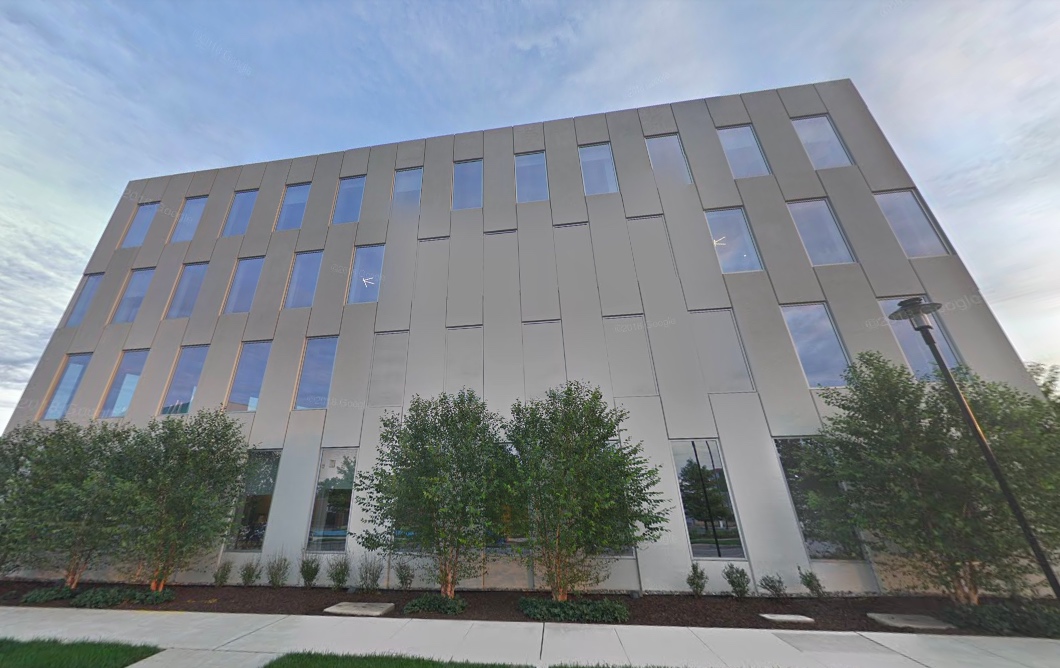When the pandemic hit and many companies pivoted to remote work, no one could be sure what the future looked like for a return to office, even IRL stalwarts. But since 2020, a hybrid system has become more of a norm, allowing employees to work some days in the office and some days from home. This change impacted what companies do with their office spaces.
This month, pharmacy giant Rite Aid unveiled its new headquarters in the form of a “collaboration center” in Philadelphia’s Navy Yard, with 23,000 square feet on the second floor of 1200 Intrepid Ave. The goal for the new HQ is to be a place where remote employees can come together for — you guessed it — in-person collaboration. The space can accommodate up to 300 employees and includes features such as digital Neat Boards for video conferencing, a video studio, a Genius Bar, a catering kitchen and a respite room.
The corporation previous based its HQ in Camp Hill in Cumberland County.
“This new collaboration space represents how we are modernizing our brand from the inside out,” Rite Aid President and CEO Heyward Donigan said in a press release. “We are not only transforming our business to better serve our customers, but we are embracing new ways of working that blends a remote-first corporate workforce with opportunities for in-person collaboration.”
Rite Aid isn’t the only big company to open a new workspace in Philly, or elsewhere, specifically for convening remote employees: Capital One just announced plans for a 22,000-square-foot space in Center City, and TD Bank opened a much smaller “innovation lab” in University City, which serves other company purposes besides coworking.
What’s up?

In the lobby of Rite Aid’s Navy Yard HQ. (Courtesy photo)
Rite Aid entered into a long-term lease with Ensemble Real Estate Solutions for its IRL center. Mark Seltzer, SVP of development for Ensemble at the Navy Yard, told Technical.ly that the Rite Aid space is an example of the continuation of a trend.
“For years now, corporations have been thinking about [a] smaller footprint even before the pandemic,” he said. “Creating collaboration and innovation spaces to bring people together and we’ve seen that for many years now. This is just really a twist on that.”
The Navy Yard had its best leasing year in its history in 2021, Seltzer said, as companies are trying to pull people out of their homes and bring them together a few days per week. The South Philadelphia innovation hub checks a lot of boxes in terms of the quality of the buildings, parking space, relative location to mass transit and the surrounding environment.

1200 Intrepid Ave., where Rite Aid’s new HQ is based on the second floor. (Screenshot via Google Maps)
Les Haggett, first VP of CBRE who focuses on the Philadelphia region, said the real estate services firm is seeing a “flight to quality” — meaning that companies are looking to upgrade their space by reducing their physical footprint, but investing in their space as an attraction and retention tool for employees.
“It’s not really a place to come and work every day,” he said. “It’s really more of a place for folks to kind of have team meetings and collaborate and have that kind of a different work environment.”
Haggett said companies are also willing to pay more for better properties to provide more amenities such as meeting spaces, fitness centers and access to public transportation. Before the pandemic, there was a trend of densification where the space per person was less and coworking spaces were tighter, he said; now, companies are doing the opposite of that and looking at larger work stations and potentially larger offices, as well as looking for ways to create flexibility within them.
Many of Haggett’s clients have been focused on making better use of their space. Where in the past people would have a cubicle they sat at every day, now, since people are only coming in a few days per week, that space can be better used as a small meeting room or a private room to take calls.

In the lobby of Rite Aid’s Navy Yard HQ. (Courtesy photo)
Pre-pandemic, employers largely dictated where and when their employees worked. But when the pandemic hit and many workplaces went remote, employers were surprised at first about how productive employees still were when working from home. Haggett said this made companies think about how they could get the best of both worlds — the collaboration that comes from working in an office and the flexibility of working remotely.
“I think that’s where we are in the cycle right now, is companies trying to figure out what is the best approach for their culture for their team and the type of employees they have,” he said. Overall, they’re “trying to embrace the in-person connectivity that that brings, but also knowing that employees like the flexibility. And certainly with the strength of the labor market, employers just aren’t in a place to dictate employees coming back to the office. And until something changes in that dynamic, I think you’re gonna continue to see this kind of hybrid flexible model.”
Sarah Huffman is a 2022-2024 corps member for Report for America, an initiative of The Groundtruth Project that pairs young journalists with local newsrooms. This position is supported by the Lenfest Institute for Journalism.Join the conversation!
Find news, events, jobs and people who share your interests on Technical.ly's open community Slack

Philly daily roundup: Earth Day glossary; Gen AI's energy cost; Biotech incubator in Horsham

Philly daily roundup: Women's health startup wins pitch; $204M for internet access; 'GamingWalls' for sports venues

Philly daily roundup: East Market coworking; Temple's $2.5M engineering donation; WITS spring summit


